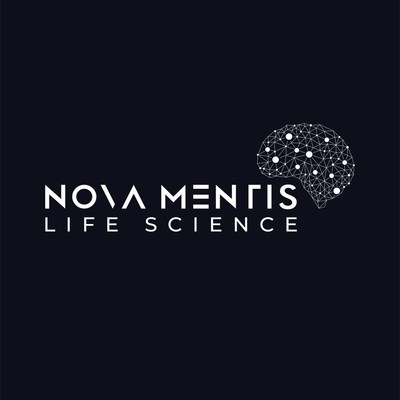VANCOUVER, BC, Feb. 11, 2021 /CNW/ - Nova Mentis Life Science Corp. (CSE: NOVA) (FSE: HN3Q) (OTCPK: LIBFF) ("NOVA" or the "Company"), a leader in the development of serotonergic psychedelic compounds, is pleased to announce that it has appointed Gary R. Harlem to its Scientific Advisory Board, effective immediately.
Mr. Harlem is the founder and CEO of Altucell Biotech, a cellular engineering and biotech company focused on fulfilling a large "unmet need" in cell, molecular and regenerative therapy for treatment of diabetes and other autoimmune and neurodegenerative diseases.
"We're excited to expand the breadth of expertise on our Scientific Advisory Board with the addition of Mr. Harlem, who brings to our team his knowledge of exploring novel cell therapy approaches to autoimmune, chronic inflammatory and degenerative disorders," said Dr. Marvin S. Hausman MD, Chairman of NOVA's Scientific Advisory Board. "I look forward to working with him to develop the therapeutic application of psilocybin in diabetes, chronic bowel disease and liver disease."
Signal transduction is the term used by scientists to describe the reaction that occurs when a compound binds to a cell receptor. Different molecules use different cell receptors. Psilocybin and psilocin use serotonin receptors to cause their physiologic effects. Several serotonin receptors including 5-HT2A belong to a family called G-protein coupled receptors (GPCRs) (*Kroeze, 2003). GPCRs are one of the largest and most diverse families of proteins in mammals. Most of 5-HT is synthesized in the gastrointestinal tract of humans and animals and is an important regulator of gut activity.
The majority of preclinical and clinical studies on psilocybin have focused on its central nervous system effect. However, brain-derived serotonin accounts for only approximately 5 per cent of total body serotonin produced (*Berger, 2009).
"Although the impact of serotonin produced in the central nervous system on the regulation of behavior and physiology has been in the center of scientific interest for decades, until recently peripheral serotonin has been ignored. Lately it became clear that the serotonin system in the periphery regulates multiple physiological aspects independently of the brain-derived serotonin. In particular, peripheral serotonin plays a pivotal function in the regulation of glucose and lipid homeostasis by acting on different organs and cell types." (*El-Merahbi, 2015).
In the body the vast majority of serotonin is produced by enterochromaffin cells of the gut. The gut-derived serotonin (GDS) can act locally in the gastrointestinal (GI) tract or it can enter the blood circulation (*Berger, 2009). One can hypothesize that psilocybin and/or its related tryptamine derivatives could influence the course of type 1 and type 2 diabetes, inflammatory bowel disease (IBD), celiac disease, colorectal cancer and diverticular disease (*Manocha, 2012). Another potential application is fatty liver disease (NASH), which is an unmet medical need.
Mr. Harlem is an accomplished entrepreneur focused on the health and wellness sector, launching several companies in the nutritional supplement and health food markets.
"I am eager to join NOVA's Scientific Advisory Board and utilize my experience running a global cell and molecular therapy company to help advance the innovative research underway to improve the lives of autism spectrum disorder patients," said Gary R. Harlem.
Mr. Harlem has a degree in Education from Dowling College in New York and began his career as a special education teacher. He became interested in exploring novel treatment strategies for autoimmune diseases when his son was diagnosed with Type 1 diabetes at the age of 10.
*Berger, M. Gray, JA. Roth, BL. 2009. The expanded biology of serotonin
Annu. Rev. Med., 60: 355-366.
*El-Merahbi, R. et al. 2015. The roles of peripheral serotonin in metabolic homeostasis. FEBS Letters. 589(15): 1728-1734.
*Kroeze, WK. Sheffler DJ. Roth BL. 2003. G-protein-coupled receptors at a glance. Journal of Cell Science. 116(24):4867-4869.
*Manocha, M. and Khan, WI. 2012. Serotonin and GI Disorders: An Update on Clinical and Experimental Studies. Clin Transl Gastroenterol. 2012 Apr; 3(4): e13.
About Nova Mentis Life Science Corp.
Nova Mentis Life Science Corp. is a Canadian-based biotechnology company that is focused on the emerging field of serotonergic psychedelic medicine, such as psilocybin and its related tryptamine derivatives. The Company is a global leader in this field by integrating the latest state-of-the-art medical and scientific technology into its drug development program. The goal is to diagnose and treat debilitating chronic conditions that have unmet medical needs, such as autism spectrum disorder (ASD).
On Behalf of the Board
Will Rascan, President & CEO
Nova Mentis Life Science Corp.
Phone: 778-819-0244
Toll Free: 1-833-542-5323
Twitter: @novamentislsc
Instagram: @novamentislsc
Facebook: @novamentislsc
Neither the Canadian Securities Exchange nor its Market Regulator (as that term is defined in the policies of the Canadian Securities Exchange) accepts responsibility for the adequacy or accuracy of this release.
This news release contains statements that constitute "forward-looking statements." Such forward looking statements involve known and unknown risks, uncertainties and other factors that may cause Nova Mentis Life Science's actual results, performance or achievements, or developments in the industry to differ materially from the anticipated results, performance or achievements expressed or implied by such forward-looking statements. Forward looking statements are statements that are not historical facts and are generally, but not always, identified by the words "expects," "plans," "anticipates," "believes," "intends," "estimates," "projects," "potential" and similar expressions, or that events or conditions "will," "would," "may," "could" or "should" occur.
SOURCE Nova Mentis Life Science Corp.

![]() View original content to download multimedia: http://www.newswire.ca/en/releases/archive/February2021/11/c4673.html
View original content to download multimedia: http://www.newswire.ca/en/releases/archive/February2021/11/c4673.html







